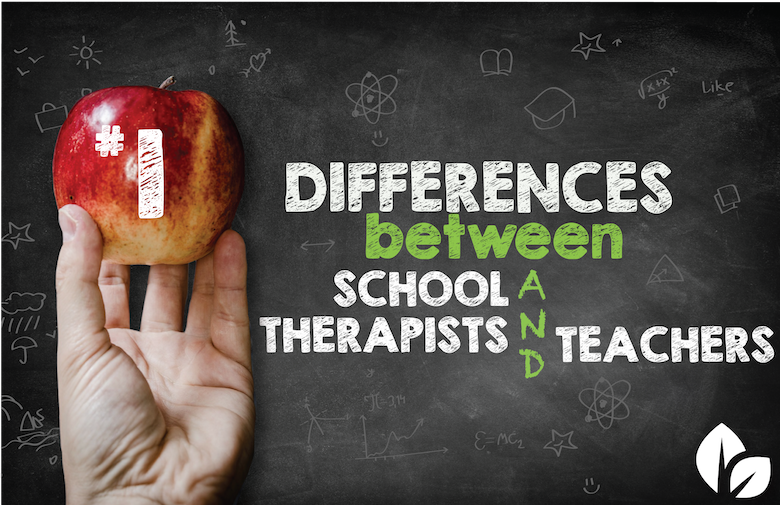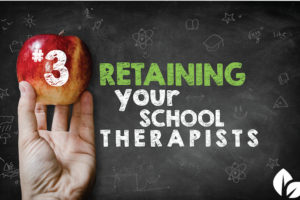Understanding School Therapists and How they Differ from Teachers
To simplify communication and avoid unwanted stigma of being pulled out of class for remedial instruction; administrators, teachers, and parents, often refer to Speech Language Pathologists who work in a school setting as the “speech teacher.” Although this is helpful for young students, it often leads to misleading assumptions about Speech Language Pathologists and the work that they do. Physical Therapists and Occupational Therapists who work in the school settings aren’t usually referred to as a “teacher,” but they also suffer from a general lack of understanding about what they do with their time. Just ask any kid what an Occupational Therapist does and you’ll get the idea.
Although focusing on things that we have in common with one another builds community, taking time to understand differences is equally important. Identifying differences shows respect and builds trust. We’ve identified 7 differences between teachers and school therapists may not be common knowledge among your staff and parents. The following chart provides a brief review of the ways that School Therapists differ from School Teachers in the following areas: role, purpose, the degree needed to begin working, license renewal and continuing education requirements, supervision responsibilities, instructional group size, and instructional frequency.
Download a pdf of this table here: 7 Ways School Teachers and School Therapists are Different
Different, not Better.
School administrators set up both School Therapists and Teachers for success, just in different ways. Children benefit from being cared for according to the expertise of each professional, some as a practitioners and others as educators. As therapists and teachers complement each other in their specific roles, children are supported to become better students, and everyone wins.
Increasing awareness of the differences between School Therapists and Teachers can help create a school environment where every staff member feels valued and respected. Hopefully, this brief review encourages accurate communication between School Therapists, parents, administrators and other educators, enabling them to value one another and have realistic expectations of one another.
Have we missed anything? As a school administrator or as a Speech Language Pathologist, Physical
Therapist, or Occupational Therapist who works in a school setting; what differences have you noticed between your professions? We’d love to add them to our list. Please share in the comments section below!





